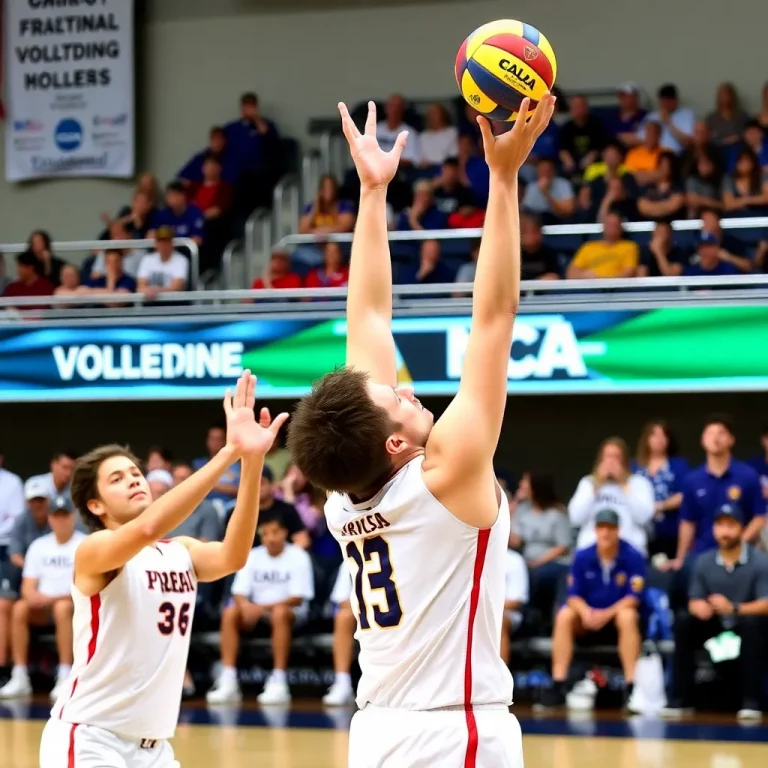COLUMBUS – Loyola Chicago’s Heartbreaking Loss in NCAA Men’s Volleyball Quarterfinals
In a tough match at the Covelli Center, Loyola Chicago faced a devastating defeat against Pepperdine, with the final score reaching 4-1 in the NCAA Tournament quarterfinals on May 8, 2025. The loss marked a bittersweet end to an impressive season for the Ramblers, who finished with a record of 25 wins and 4 losses.
Returning head coach Shane Davis led the team to its first NCAA Tournament appearance since 2015 after taking home the MIVA Championship just a few weeks earlier. After the game, Coach Davis praised the program’s culture, crediting standout players like Parker Van Buren and Nicodemus Meyer for their leadership.
“These guys work incredibly hard, and they’re some of our best players. When they are the hardest working players on the team, that’s when your culture is in a great spot,” said Coach Davis.
How It Happened
In the first set, Loyola Chicago started strong, showcasing a hitting percentage of .346 while containing Pepperdine to just .080. The Ramblers built and maintained their lead throughout the set. All-American Daniel Fabikovic opened the scoring for Loyola while Van Buren extended their lead, pushing the score to 14-11. They ultimately claimed the set, 25-18.
Set two proved to be a nail-biter, with 17 tied scores and multiple lead changes. Despite a late surge and a set point opportunity for Loyola, Pepperdine managed to pull through and win the set 28-26 after a series of intense rallies.
The third set saw Pepperdine take control, going on a significant 5-0 run and capitalizing on 10 attack errors from the Ramblers. They secured the set winning it 25-13.
In the fourth set, Loyola struggled to take the lead and fell behind again early on. They fought back with moments of brilliance, including a thrilling rally that ended in a kill from Meyer. However, their efforts weren’t enough, and the match ended with a score of 25-21 in favor of Pepperdine.
While the loss stings for the Ramblers, the season showcased their potential and the leadership that may guide them into the future.
As the team reflects on their performance, they can take pride in their accomplishments this year, knowing the culture established will continue to foster growth for the program moving forward.



